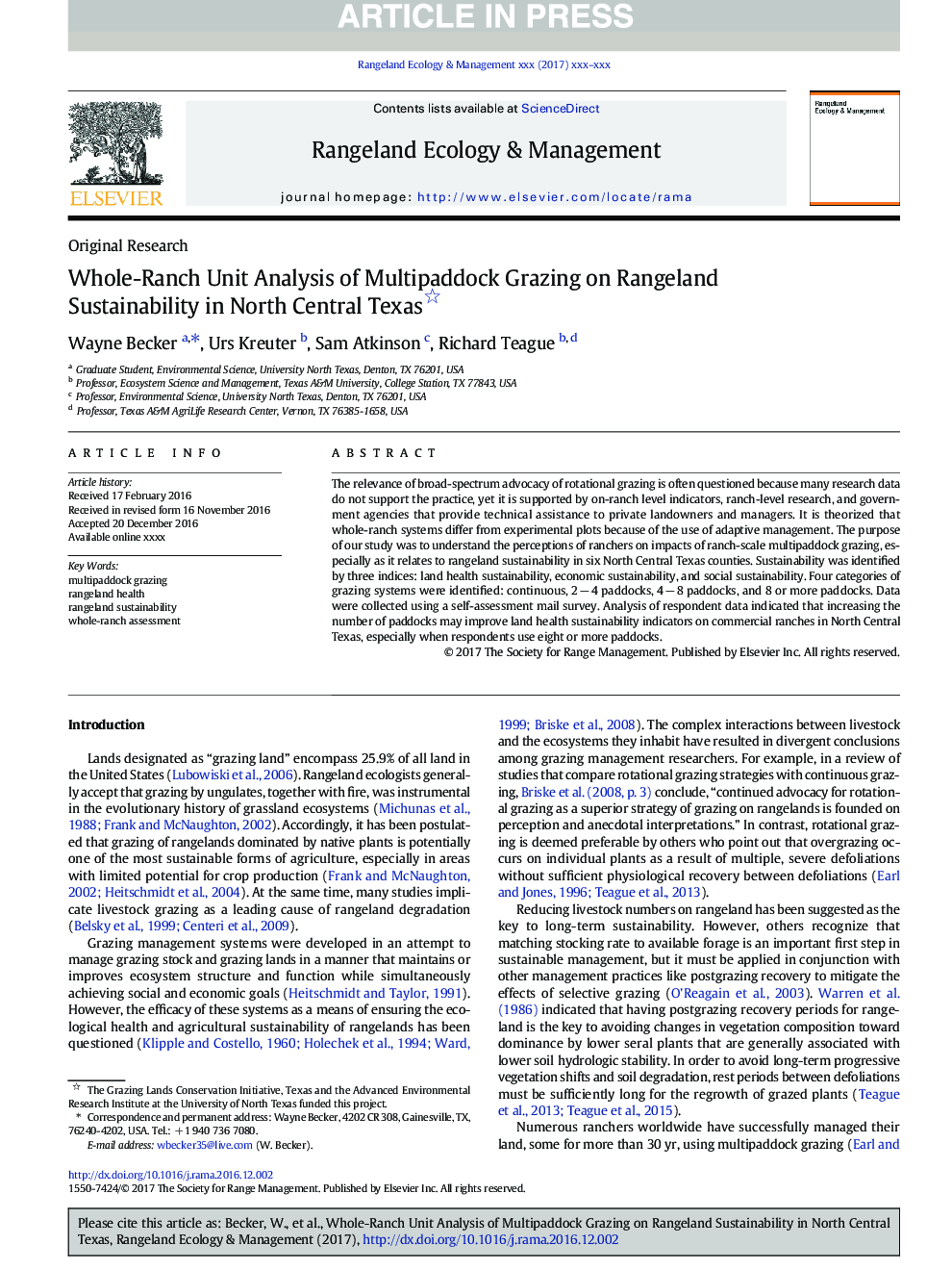| Article ID | Journal | Published Year | Pages | File Type |
|---|---|---|---|---|
| 5745224 | Rangeland Ecology & Management | 2017 | 8 Pages |
Abstract
The relevance of broad-spectrum advocacy of rotational grazing is often questioned because many research data do not support the practice, yet it is supported by on-ranch level indicators, ranch-level research, and government agencies that provide technical assistance to private landowners and managers. It is theorized that whole-ranch systems differ from experimental plots because of the use of adaptive management. The purpose of our study was to understand the perceptions of ranchers on impacts of ranch-scale multipaddock grazing, especially as it relates to rangeland sustainability in six North Central Texas counties. Sustainability was identified by three indices: land health sustainability, economic sustainability, and social sustainability. Four categories of grazing systems were identified: continuous, 2 â 4 paddocks, 4 â 8 paddocks, and 8 or more paddocks. Data were collected using a self-assessment mail survey. Analysis of respondent data indicated that increasing the number of paddocks may improve land health sustainability indicators on commercial ranches in North Central Texas, especially when respondents use eight or more paddocks.
Keywords
Related Topics
Life Sciences
Agricultural and Biological Sciences
Agricultural and Biological Sciences (General)
Authors
Wayne Becker, Urs Kreuter, Sam Atkinson, Richard Teague,
